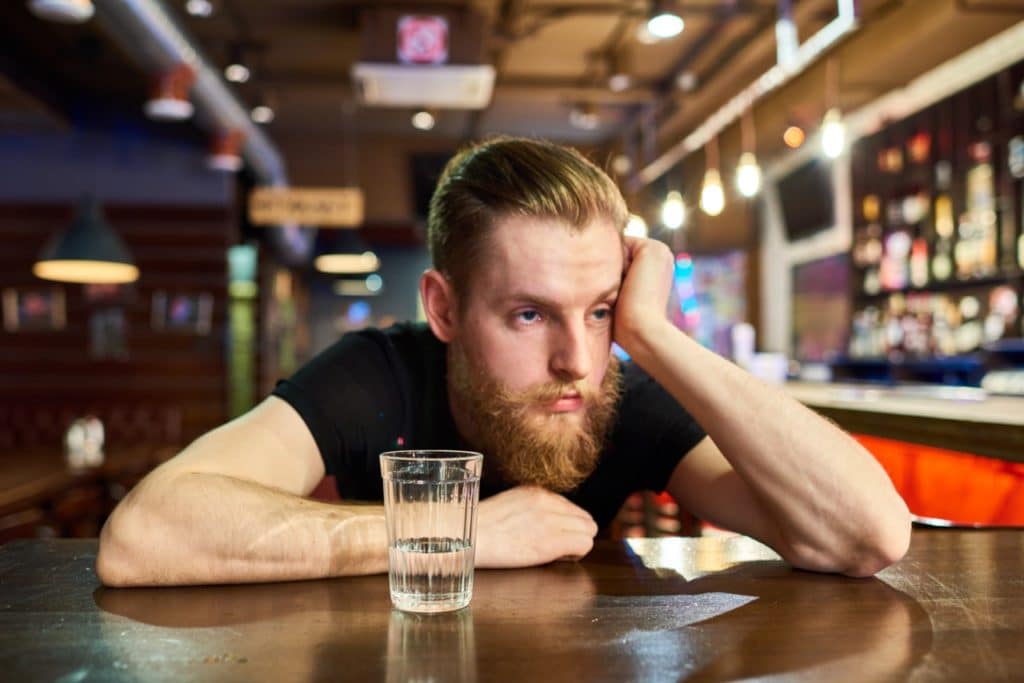Alcohol is one of the most widely consumed psychoactive substances in the world, with over 85% of American adults reporting having tried it at some point in their lives. While many people turn to alcohol for its mood-enhancing effects, it’s important to understand that this popular substance can also have significant effects on the brain. Alcohol’s impact on the brain is so profound that it has long been a subject of scientific inquiry.
So, is alcohol a stimulant or a depressant? While the answer might seem straightforward, the truth is more nuanced. While alcohol is generally considered a depressant, it can also act as a stimulant in certain contexts. In this article, we will explore the fascinating and complex effects of alcohol on the brain, and attempt to answer the question of whether it is a stimulant or a depressant (or both).
Stimulants vs. depressants
What are stimulants?
Stimulants are a class of drugs that speed up messages traveling between the brain and body, leading to increased energy, confidence, alertness, and wakefulness. Examples include nicotine, caffeine, cocaine, and amphetamines. Large doses can cause overstimulation and negative side effects like seizures, panic, anxiety, and aggression.
Examples of stimulants
Stimulants include nicotine, caffeine, cocaine, ice, synthetic cathinone, khat, betel nut, and amphetamines. Stimulants often take the form of powders, capsules, tablets, and crystals. Large doses of stimulants can cause over-stimulation, leading to seizures, panic, anxiety, paranoia, aggression, headaches, and stomach cramps.
What Are Depressants?
Depressants are a class of drugs that reduce stimulation and arousal, impacting the central nervous system and slowing down the message traveling between the brain and body. They can cause feelings of relaxation and reduced inhibition in small doses, but large doses can lead to drowsiness, unconsciousness, vomiting, and even death. Common examples include alcohol, cannabis, benzodiazepines, and opioids.
Some drugs can have both stimulant and depressant effects depending on the dosage and the individual’s response to the drug. For example, alcohol is primarily a depressant but can have stimulant effects at low doses.
Why is alcohol considered a depressant?
Alcohol is considered a central nervous system depressant despite most people using it to feel better or gain confidence. Like other depressants, alcohol impairs and slows both psychological and physical activity.
Due to how it slows down brain activity, alcohol can reduce one’s ability to make rational and reasonable decisions. Furthermore, it contributes to distorted judgment and reduced inhibitions. As such, many people report making decisions while intoxicated that they wouldn’t have made while sober.
Side effects of alcohol as a depressant
Despite the differences in how people are affected, there are several common side effects of alcohol as a depressant. The depressant effects of alcohol include:
-
Impaired motor skills and coordination
▻
-
Slurred speech
▻
-
Slower reaction times
▻
-
Mental cloudiness and confusion
▻
-
Reduced blood pressure
▻
-
Cognitive and memory impairment
▻
-
Euphoria
▻
-
Nausea and vomiting
▻
-
Stopped or slowed heart rate
▻
-
Slowed or depressed breathing
▻
-
Seizures
▻
-
Sleepiness and unconsciousness
▻
-
Emotional instability and severe mood swings
▻
These side effects can be exacerbated when alcohol is combined with other drugs. Depressants can affect everyone differently, based on the following:
-
The amount of drugs taken
▻
-
Whether another drug was taken/ administered around the same time
▻
-
Whether one is used to taking it
▻
-
Weight, size, and health
▻
-
The strength of the drug
▻

Mixing depressants with other drugs
Alcohol can be damaging even if taken independently. However, the effects of taking alcohol (or other depressants) with other drugs–such as prescribed or OTC drugs–can be hazardous and unpredictable. Examples include:
-
Benzodiazepines + opiates (like heroin) can cause an increased overdose risk, breathing difficulties, and death
▻
-
Alcohol + benzodiazepines can cause decreased breathing and heart rate. An overdose is highly likely.
▻
Can alcohol be a Stimulant?
Technically, alcohol is a depressant. However, when it’s first ingested, alcohol acts very much as a stimulant. It triggers the brain to release dopamine, a neurotransmitter that provides stimulation, good feelings, and energy. Dopamine elevates one’s mood, and it enhances the ability to feel motivation and pleasure.
Additionally, in low doses, alcohol has stimulating effects on the rest of the body. These include:
-
Increased energy levels
▻
-
Confidence
▻
-
Alertness
▻
-
Increased blood pressure and heart rates
▻
Alcohol can also lead to aggression, typical of stimulants. However, these stimulating effects of alcohol aren’t similar for everyone. Age, weight, body chemistry, and sex can affect alcohol metabolism. They can also affect the extent to which one has built up an alcohol tolerance.
Alcohol’s stimulant effects increase as the blood alcohol concentration (BAC) approaches 0.05 milligrams per liter. However, alcohol’s depressant effects are likely to push the stimulant effect by the time one reaches a BAC of 0.08 milligrams per liter. This is often the legal level of intoxication in most places.
Some people may experience varying and more stimulating effects from alcohol, whereas others may experience more depressant effects. Individuals who experience more stimulating effects than depressant/sedative effects from alcohol are at an increased risk of alcoholism.
The dangers of alcohol use disorder
People with alcohol use disorder continue to use alcohol despite suffering negative effects of the same. Although alcohol use disorder cases may vary in severity, individuals who receive treatment can recover fully.
Some people are more likely to develop alcohol use disorder than others. They may include individuals:
These symptoms may include:
-
Who drink heavily or regularly binge drink
▻
-
Who have a history of trauma
▻
-
With mental health conditions like depression
▻
-
Who started drinking early in life
▻
-
With a family history of alcohol use disorder
▻
Extended alcohol usage can cause dependency issues–psychological and physical. Extreme alcohol drinking can lead to alcohol poisoning.
Excess consumption can also cause difficulties in breathing, increased heart rates, and uneven temperatures. Worse, alcohol poisoning can cause brain damage and even death.
Treatments for AUD
Treatments for alcohol dependency (alcohol use disorder) vary from medications to therapies and rehabilitation. Medications may include naltrexone and acamprosate. Generally, counseling and rehab are effective ways to deal with alcohol use disorder.
Find Help for Alcohol Addiction in San Diego
Seeking help for alcohol addiction can be a difficult but important step toward recovery. Whether alcohol is a depressant or has stimulant effects, addiction to it can have serious consequences. At Villa Oasis, a residential detox facility in San Diego, we offer professional clinical and medical support to help individuals address their alcohol dependency and addiction.
Villa Oasis offers upscale and private treatment options in a safe and supportive environment where you can address your alcohol addiction.
Contact us to get started on a journey toward a better life. Our experienced rehab professionals are here to help set you on a path toward recovery.





